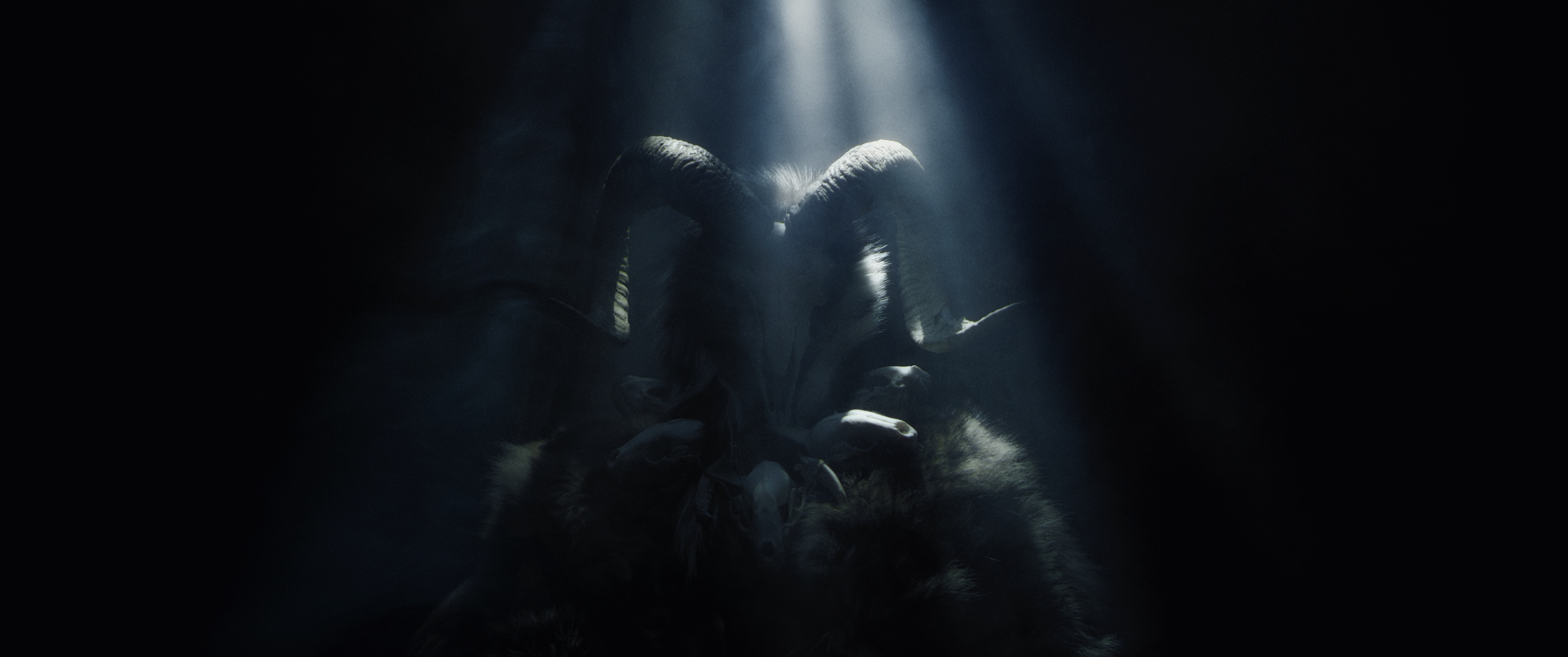What to Watch Verdict
'Sator' feels right at home with the bleak familial meditations of 'Relic' and 'The Dark and the Wicked'.
Pros
- +
🐐Oppressively bleak atmosphere.
- +
🐐Somber meditations on hereditary mental illness.
- +
🐐Bold cinematographic choices.
Cons
- -
🐐The film is so introspective to its auteur's experiences that it can be hard to approach as an outsider.
When approaching a film like Sator, the best advice that anyone can give you is that you have to accept the film on its own terms. It’s auteur cinema as its most fundamentally pure, a small-scale production with one man, Jordan Graham, serving in nearly every off-camera role, including writer, director, cinematographer, and editor. The film tells an intensely personal story that is based in large part on Graham’s own experiences and those of his immediate family with hereditary mental illness, but filtered through a supernatural lens that highlights the underlying horrors of their shared lives. It’s just such a personal film that it will inevitably lose some of its audience.
In the aftermath of his grandfather’s mysterious death, Adam (Gabriel Nicholson) spends much of his time alone in the woods, ostensibly hunting but seemingly more internally focused than externally alert. When not out there, he visits with his brother Pete (Michael Daniel) and their grandmother Nani (June Peterson). Complicating matters, Nani suffers from dementia and often talks of auditory messages she receives and transcribes from an entity named Sator. As we spend more time with Adam, we come to realize that Sator has not only visited his grandmother, but his mother as well, leading to her disappearance and provoking Adam to spend his isolated days combing the woods — and Nani’s recorded messages from Sator — to discover what exactly has haunted his family for generations.
Sator thrives on its dour atmosphere, immersing you in a world populated only by a singular family that isn’t prone to conversation and delivers their lines in hushed, naturalistic tones. Though the film exists in a wooded area seemingly devoid of animal life, it feels oppressive in its persistent feeling of otherworldly presence, an impressive feat for the film’s obvious lack of financial resources. It’s the slowest of burns, taking every wordless moment of its eighty-six minute runtime to build toward a prescient climax that leaves you to ponder the impact of hereditary experiences, whether they are the result of degradation or an accursed bloodline. Hell, the difference between the two might be entirely semantic, depending upon your point of view.
However, that atmospheric approach is a double-edged sword, and for as much as one might appreciate how Graham cuts to the core of the fear inherent to a lineage’s loss of independence and selfhood, it also cuts against any universal relatability to Graham’s characters or their experiences. The minimal dialogue and slow pacing set an oppressive tone, but that tone is so oppressive that it robs the characters of identity beyond their service to the plot and its symbolism. At times it feels less like Graham is less concerned with fictionalizing his family history than exploring the emotions that history provokes, a storytelling ethos that’s immediately apparent in the difference between how he shoots scenes in and out of Nani’s home: outdoor shots in widescreen and verdant color, indoor shots in grainy monochrome with a claustrophobic aspect ratio. That explicit reliance on visual symbolism is not necessarily a problem – such bold choices should be applauded if cinematic creativity is to thrive – but it does make the film somewhat inscrutable unless you know exactly what Graham is aiming to portray, since it isn’t always self-evident or conveyed with adequate coherence.
I’m more impressed with Sator than enamored with it, respectful of the craft and particular vision that underlies its purpose even if the emotional core of the film did not resonate as intended. It feels right at home with the bleak familial meditations of Relic and The Dark and the Wicked, an indier-than-indie companion piece that doesn’t let a lack of budget undermine a wealth of vision. Its vision is just so introspective that it doesn’t do much to guide a prospective audience to its thematic riches, instead leaving breadcrumbs through the woods with faith that your heart will follow along with your head. That might not be enough for some, including myself, and I envy those whose hearts make the journey.
Sator releases on VOD on February 9, 2021.
- The best Amazon Prime movies
- Amazon is right: You don't own your digital media
- The best shows on Amazon Prime
- New movies on Amazon Prime
The latest updates, reviews and unmissable series to watch and more!
Leigh Monson has been a professional film critic and writer for six years, with bylines at Birth.Movies.Death., SlashFilm and Polygon. Attorney by day, cinephile by night and delicious snack by mid-afternoon, Leigh loves queer cinema and deconstructing genre tropes. If you like insights into recent films and love stupid puns, you can follow them on Twitter.


